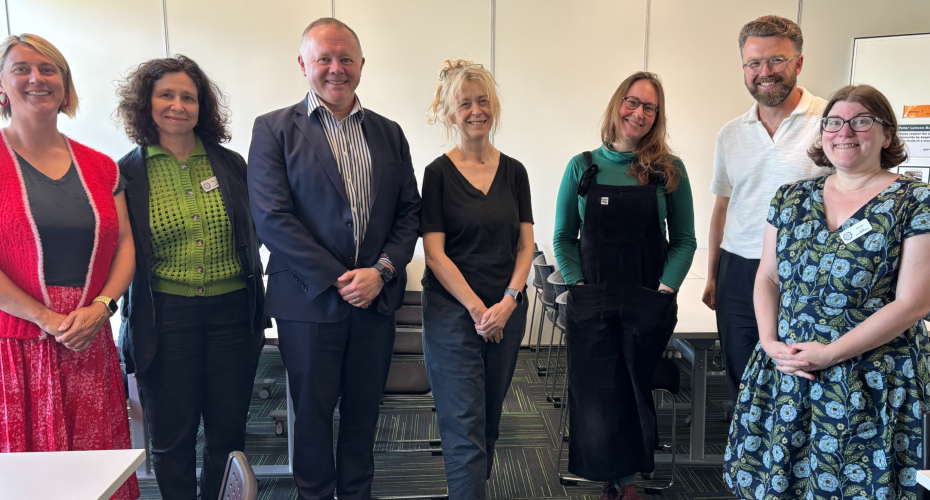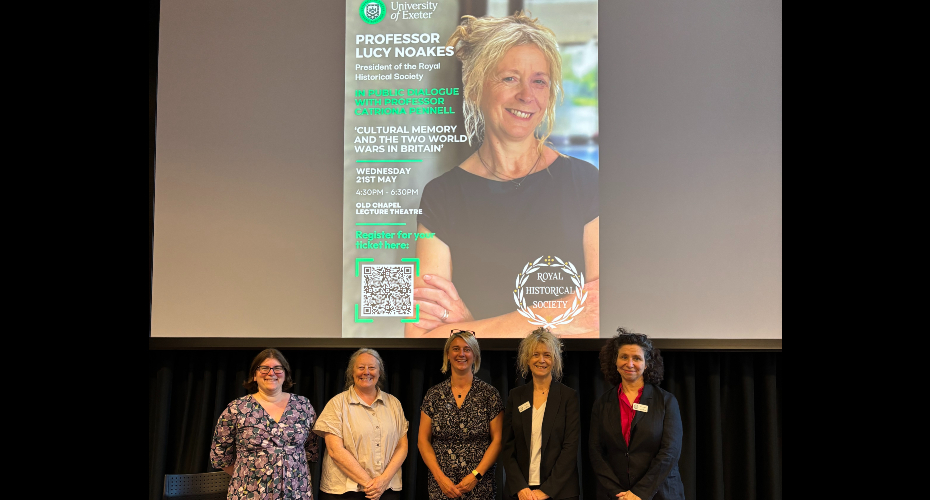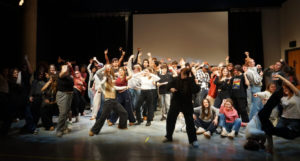Royal Historical Society praise for University’s Cornwall historians

The Royal Historical Society visit Penryn
The Royal Historical Society (RHS) has praised the quality of history research and teaching taking place at the University of Exeter’s Cornwall campus in Penryn.
The RHS – the UK’s largest and oldest membership organisation for professional historians – spent two days visiting the University Department of Humanities and Social Sciences, Cornwall (HaSS Cornwall), last week, meeting staff and students.
It was the first visit to a university by the society’s new President, Professor Lucy Noakes, and the first by the RHS to any higher education institution in 2025 under its outreach scheme.
Among the topics of conversation was the increasing trend in higher education for multi-disciplinary humanities departments, and how historians can navigate this change.
“RHS visits are an important part of our annual calendar, and are both a means for the President and Councillors of the Society to meet with historians around the country, and an opportunity to better understand the opportunities and challenges faced by colleagues working in a range of different institutions,” said Professor Noakes.
“We were hugely impressed by the work undertaken by historians at Exeter’s beautiful Penryn campus, both in terms of the rigorous yet innovative research that we saw, but also the thought put into delivering a high quality historical and interdisciplinary curriculum for the students there.”

Professor Noakes was accompanied by members of the Society’s governing Council and held several meetings and sessions with HaSS Cornwall staff over the two days. Among them was a discussion on the wider state of the historical discipline; a public discussion between Professor Noakes and Professor Pennell on Cultural Memory and the Two World Wars in Britain, and a meeting with key Faculty and departmental leadership, including Professor Gareth Stansfield OBE, Pro-Vice-Chancellor and Executive Dean, to discuss wider strategy and advocacy.
Professor Stansfield said: “The Department of Humanities and Social Sciences, Cornwall is home to a thriving community of history and humanities scholars, whose world-class research and teaching span a breadth of fields. It was a great opportunity, therefore, to engage with the RHS and discuss the specifics of our Cornwall history offering, as well as the emerging trends and developments across higher education and the broader history and heritage sector. In so doing, we can continue to meet the needs of our students and develop meaningful research collaborations for the good of society.”
The RHS said it was particularly impressed by the University’s pioneering approach to interdisciplinary research and teaching on the campus. This included important collaborative work being undertaken in fields, such as power, violence and decolonialism, and memory, identity and heritage – as well as environmental humanities.
The visit was the result of a competitive open application made by humanities colleagues in HaSS Cornwall as part of the RHS’ outreach scheme. University historians can apply for a visit from the RHS Council to discuss the work of a department as well as wider disciplinary matters, and to conclude the event with a public lecture.
The department is hoping to deepen its connections to the RHS in the future.
“We were honoured to host the RHS and showcase the fantastic interdisciplinary research and teaching that takes place in HaSS Cornwall with History at its centre,” said Catriona Pennell, Professor of Modern History and Memory Studies. “I was especially pleased that several of our undergraduate History and Politics BA (Hons) students joined us for the public discussion, impressing our visitors with their thoughtful, reflective and eloquent questions. For me, that underscores the continued importance of providing History HE opportunities in Cornwall.”



